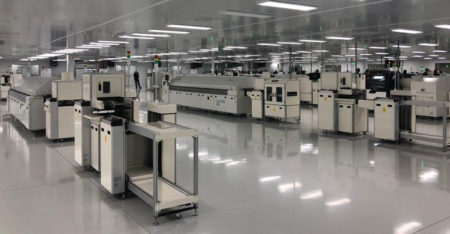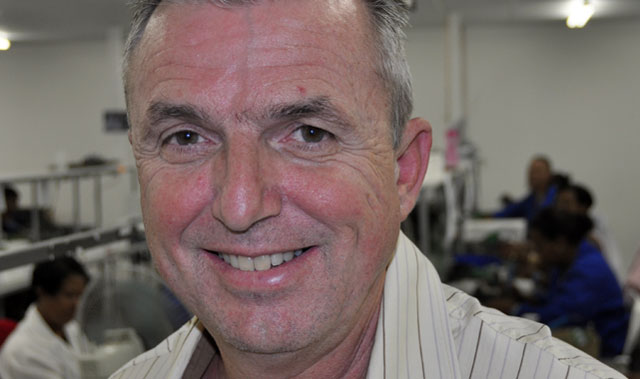
The first government-subsidised and locally manufactured set-top boxes for South Africa’s digital terrestrial television (DTT) migration project, have started rolling off a production line at an electronics factory in Boksburg, east of Johannesburg.
CZ Electronics claims to be the first company to get to market with the locally made DTT set-top boxes and expects to ramp up production to 100 000 units a month by January. Two other manufacturers, BUA Africa and Leratadima, are also gearing up to build boxes after the Universal Service & Access Agency of South Africa (Usaasa) issued tenders worth a combined R1,2bn.
According to CZ Electronics chief operating officer Rob Bruggeman, Usaasa has commissioned the three companies to manufacture 500 000 terrestrial boxes each, while BUA Africa has also been commissioned to supply 500 000 direct-to-home satellite boxes, which are being used in areas where there is no DTT signal.
The process hasn’t been without controversy, however. It was reported recently that the department of communications has decided to probe allegations of Chinese imports. Government plans to provide 5m free set-top boxes to indigent households, but wants the tender to help grow the local consumer electronics manufacturing industry.
The probe comes amid questions raised by Democratic Alliance MP Marian Shinn over BUA Africa’s securing of part of the multibillion-rand tender. She said BUA Africa had not been named by Usaasa as one of 26 companies that was chosen to be involved in supplying set-top boxes.
The controversy elsewhere aside, CZ Electronics is pushing ahead with its set-top box manufacturing programme. Bruggeman says it has spent R40m upgrading its Boksburg factory, including installing a new surface-mount technology (SMT) line capable of placing 250 000 components an hour on printed circuit boards (PCBs).
The company has built capacity to manufacture 200 000 set-top boxes a month, although it only intends using half that capacity to satisfy the Usaasa order.
CZ Electronics, which also intends manufacturing its own line of phones in South Africa starting next year, expects to have produced 9 000 set-top boxes by the end of the month. This will be ramped up quickly to 75 000 units in December, and then 100 000 units a month from January. It has been contracted to produce 500 000 decoders by Usaasa.
The largely automated SMT lines will run for 22 hours a day, while the final assembly and test lines will operate for nine hours a day. Bruggeman explains that CZ Electronics can run a second shift if demand increases, but this isn’t necessary for now.
Story continues below…
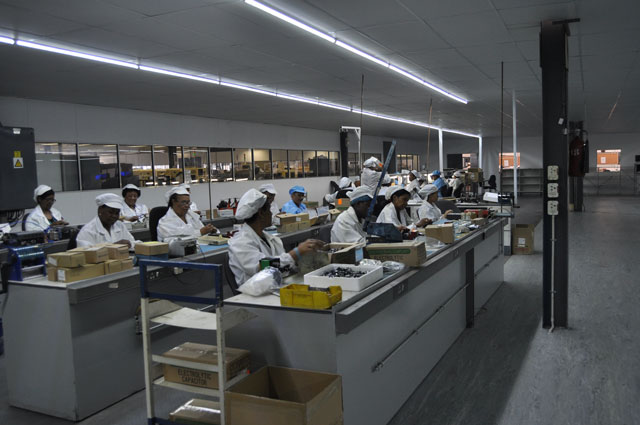
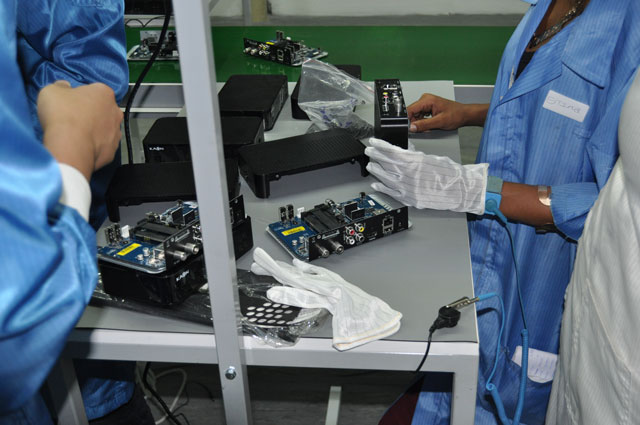
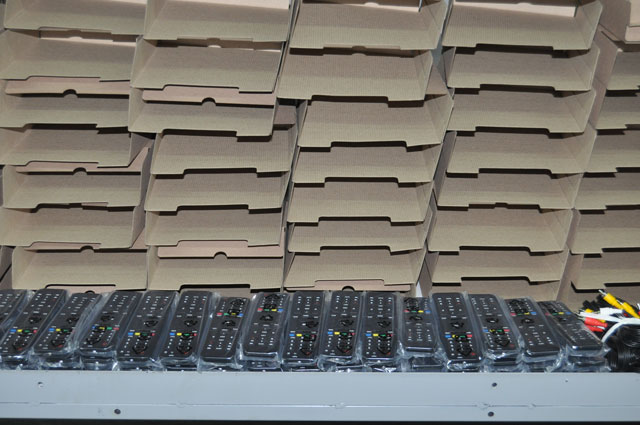
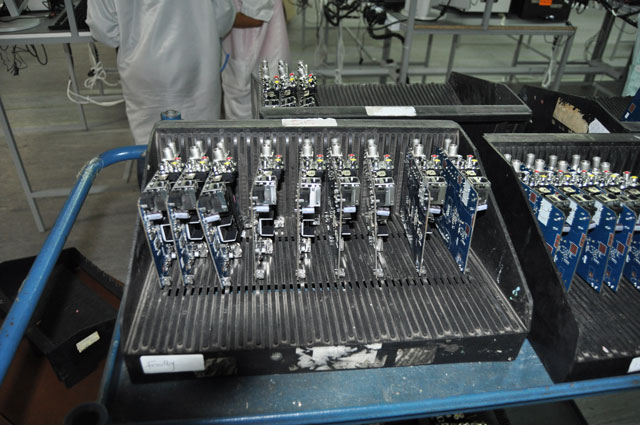
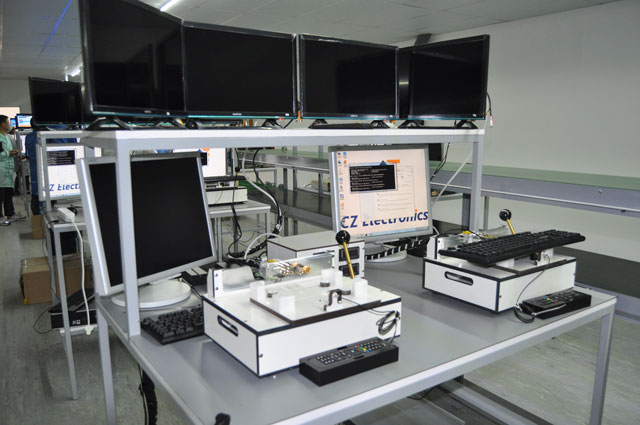
The SMT machines will put the smaller components on the PCBs, with a second, manual assembly stage following, where larger components are fitted by hand and “wave soldered” to the board. In between each step is inspection, such as after the wave soldering is completed and before functional testing begins. After final packing, the set-top boxes are sent to the Post Office for distribution.
The 86% black-owned CZ Electronics, in which former South African Revenue Service commissioner Oupa Magashula and CZ co-founder Sagran Pillay each hold a 43% stake, has partnered with Korea’s Kaon for the project. Kaon is providing technology, skills and training. Some 150 people have been employed to work on it.
Though the boxes don’t have a conditional access system based on encryption built into them — under direct instruction from government — they do contain a secure bootloader, supplied by Nagravision, allowing over-the-air updates of the firmware when required and protecting the box from being meddled with by hackers and others, says Bruggeman.
According to Bruggeman, Kaon has agreed to use the CZ Electronics factory to build set-top boxes ordered in other African markets. Already, it’s secured a deal to manufacture boxes for the Nigerian market. Although South African orders will get priority, any spare capacity will be used to fulfil orders from elsewhere on the continent. — © 2015 NewsCentral Media


